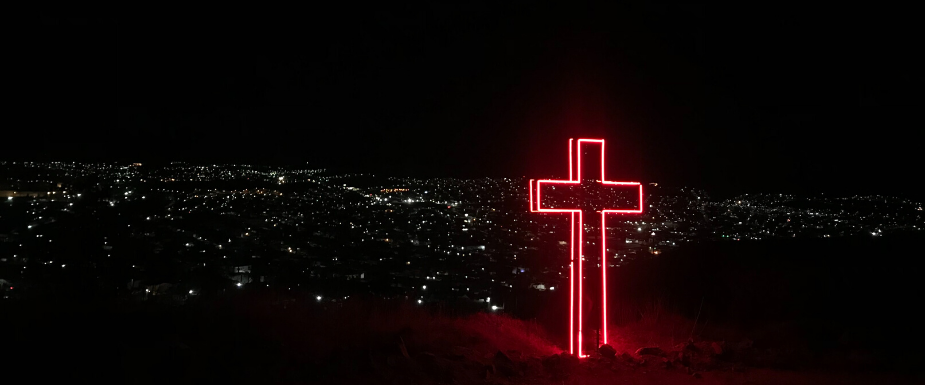What Hebrews 13 Teaches Us About Being Outsiders

Hebrews is one of the most theologically rich books of the Bible. A constant theme is the supremacy of Jesus Christ—the writer, if nothing else, wants readers to know that Jesus Christ is the Authority of All Authorities, the High Priest, the Leader, the King of Kings—and this theme also manifests itself as an exhortation of sorts. The writer gives direction and encouragement, attempting to bring readers closer and closer to the reality of what it means to call Jesus Christ the Lord of Your Life.
In the Old Testament, "The Most Holy Place" (v. 11) is, essentially, the Temple, and it was known not just as the place where people came together to worship, but it was literally viewed as the place where your salvation resided. The physical building, the geographical location, mattered to your salvation and identity. And at this Temple, sacrifices were regularly offered by priests on behalf of the people as an atonement for sins and wrongs. Once the sacrifices were done, the carcasses of the animals were taken outside of the temple—outside of the city—and burned. It was like taking out the trash.
And in both ancient and modern times, gates represent authority and power, and often, that kind of wall, that kind of restriction, that kind of power, could easily be abused by those on the inside.
But Jesus Christ changes all of that. He re-orients his people's worship and salvation from a physical structure, the Most Holy Place, to an actual man: himself! And he also re-focuses the location, going from inside the Temple to outside the city gate, the walls, where the carcasses were burned. That is now where God's people would worship, where they would find their identity, because that is where Jesus Christ is. For the first-century audience reading Hebrews, the location of your identity, if you claimed faith in this God, changed from the center of a physical, holy building to the periphery, to the margins, to the area outside the city gate, which would have been where the poor, the overlooked, the outcasts, the disenfranchised all lived. For the modern-day audience, this, too, is where we find our identity in Christ (v. 13).
This outside place was originally unclean and defiled because it's where the animal carcasses were burned, but now it becomes pure and holy—all because of Jesus Christ. Today, God's people are called to join Christ outside the city gate, to bear the disgrace that he bore (v. 13). We are called to become outsiders ourselves, leaving our own desires and loves and comforts to walk outside of the walls in our lives to love all of God's people. When we do this, we don't become absent of desires and loves and comforts, but those things start to look more and more like the desires and loves and comforts and hopes and dreams of Jesus Christ, because we are being made holy (v. 12). And, if we claim Christ as Lord of our lives, then we must also look to those being marginalized. Christ himself was cast out and marginalized. He chose to become an outsider for our salvation, so that the weakest and most vulnerable around us would no longer be viewed as outcasts, but as part of God’s holy family.
At the end of Christ Outside the Gate, Puerto Rican pastor and a missionary Orlando Costas writes, "The cross is not the end of Jesus; it is not God's last word. Jesus not only died, but rose from the dead and shall yet bring forth the new creation in all its fullness and glory." That's the city that we look forward to when we meet Christ outside of the gates (v. 14).
Costas goes on and says, "If we are saved from the power of selfishness and decay and are exhorted to move in mission outside the comfort and security of our ecclesiastical compounds, it is in order that we might serve the world and witness to the new creation by helping to transform the wilderness of an unjust, oppressive, and torn world into a garden of justice, freedom, and well-being … let us be prophets of hope in a world of disillusionment and false dreams, pressing forward to the city of God—the world of true justice and real peace, of unfeigned love and authentic freedom."
This is what it means to call Jesus Christ the Lord of Your Life, when you meet this King outside the city gates. When you do this—when you serve those whom society has deemed “outsiders” and you go to where Christ is—you will begin to see the world of true justice and real peace that only Jesus Christ can bring.
Rev. Chuck Armstrong is the Assistant Pastor at Redeemer Lincoln Square.
